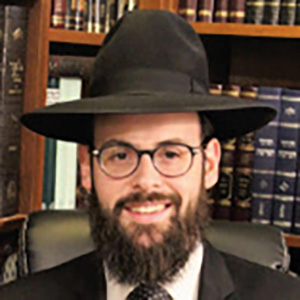
The PUAH Cares virtual conference on July 19 and July 20 brought together over 40 internationally known medical experts, rabbinic authorities and mental health professionals to talk about the latest developments in reproductive medicine and the emotional issues couples grapple with including their relationships, intimacy and shalom bayis. Prominent speakers included Norman Blumenthal, PhD; Charlie Harary; Rabbi Y.Y. Jacobson; Joshua Klein, MD; Rabbi Paysach Krohn; Jovana Lekovich, MD; Brian Levine, MD; Bat-Sheva L. Maslow, MD; David Pelcovitz, PhD; Peter N. Schlegel, MD; Sherman J. Silber, MD; Rachel Tuchman, LMHC; Rabbi Gideon Weitzman; and Zev Williams, MD.
More than 750 people registered for the conference, which was geared both to couples experiencing infertility and the wide variety of health care professionals helping them. In a virtual exhibit room, people could interact with sponsors in booths and make appointments for 15-minute conferences.
Rabbi Elan Segelman, rabbinic advisor to PUAH and rabbi of Kehilas Torah Temima in Queens, said the speakers and topics were chosen to give couples the information they need about the latest in medical developments and, just as important, to address the emotional struggles they are going through. “Another thing we wanted to accomplish with this summit was to break stigmas and make crystal clear to people struggling that there are resources available to discuss their issues in an open and professional way,” he added. “There is no reason for people to suffer alone, or at all.”
The most important point about infertility was made by a physician who said that in her practice, there is no such thing as not being able to have a child, although it may not be in the way a couple anticipated. “Reproductive technology is so advanced that the answer is not ‘no’ anymore, but ‘how,’” Rabbi Segelman emphasized. “This is not false hope. If they were born 20 or 30 years ago, we would not have been able to say that. We can say with confidence that you will have a baby and PUAH has the resources to help you with that. PUAH guides couples medically and halachically so that healthy Jewish babies are born.”
Held over two days, the virtual conference addressed all the topics relevant to couples who turn to PUAH for help with infertility. There were talks on technical topics such as medical and halachic perspectives on general infertility, fertility preservation, male infertility, high-risk pregnancy, third-party reproduction, pelvic floor treatment, holistic approaches to infertility and complications caused by cancer.
Sessions on mental and emotional health included discussions about how husbands and wives can continue to have healthy communication during this difficult time, confront loneliness and keep their intimate relationship healthy. There was even a session for parents of struggling couples about how to cope with the disappointment of wanting to be grandparents. “A lot of the messages were about never giving up, to have the courage to continue the journey,” said Rabbi Segelman.
Lea Davidson, executive director, said the event was an incredible success. “The feedback has not only been overwhelmingly positive but also remarkable in the impact it has already had. We need to keep advocating and providing resources, and continue having these important conversations about reproductive health.” She expressed appreciation to the sponsors for their support: MetroDrugs, HRC Fertility, Extend Fertility, CCRM Fertility, RMA New York, Mishpacha Magazine, The Jewish Link and Jewish Press. Rabbi Segelman said they have been answering calls and emails since the conference from viewers who wanted to follow up on things they heard, or get referrals.
Bassy Schwartz, PUAH’s volunteer coordinator, who participated in designing and marketing the event, said the virtual format was chosen specifically for their audience. “Many couples find it challenging to maintain their privacy and the boundaries surrounding their fertility journey while also getting the guidance and support that they so desperately need. This way they could attend and get an enormous amount of information and support from the comfort of their homes.”*
Anyone who registered for the conference was granted access to the recording for 30 days. Rabbi Segelman said they will be sharing content on the website, www.puahfertility.org over the coming months.
The PUAH Institute, a not-for-profit organization, was founded in Israel in 1980 to provide halachic, medical and emotional guidance about infertility for Jewish couples. For help with individual concerns, PUAH’s team of fertility experts is available 24/6 on the PUAH Cares hotline: 718-970-7202. Support PUAH at www.PuahFertility.org/Donate.
By Bracha Schwartz













